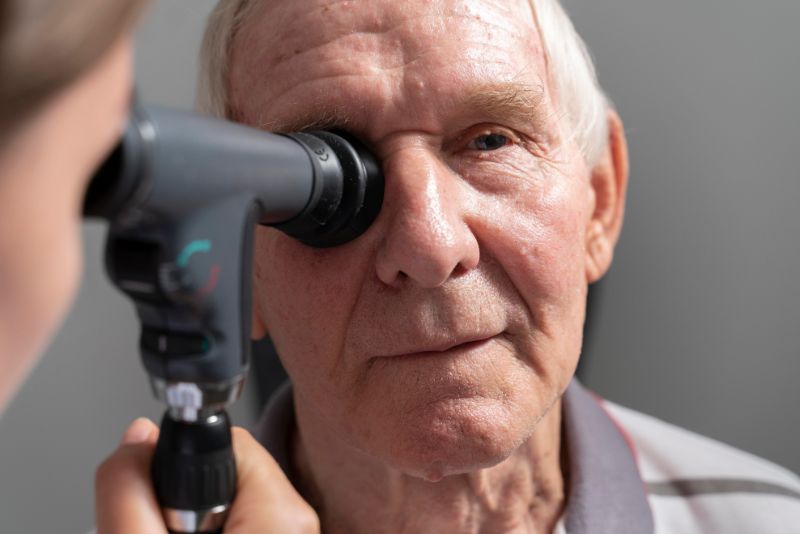
Vitreoretinal services diagnose and treat conditions affecting the vitreous, the gel-like substance that fills the eye and retina. The vitreous of the eye is in charge of receiving and processing images.
Issues with the vitreous are often a sign of other systemic health concerns, like diabetes or hypertension. Conditions and diseases that affect the back of the eye may include the following:
If left untreated, some conditions could potentially cause visual impairment.
At EyesNY, we offer different vitreoretinal services that restore vision functionality. These include laser therapy, vitreoretinal surgery, medication, and deep examinations to determine the underlying cause.
Depending on the root of your condition and specific case, your doctor will determine the best treatment plan to address your condition or disease by performing needed tests and assessments.
EyesNY specialists offer vitreoretinal services to treat the following conditions.
High blood sugar levels in people with diabetes can damage the blood vessels in the retina, developing into diabetic retinopathy. This usually occurs when the blood vessels in the retina begin to weaken and leak fluids or blood, causing swelling and distortion of vision.
Vitreous detachment happens when the substance that fills the eye (vitreous) separates from the retina. If left untreated, it can lead to complications such as retinal tears, which can cause vision loss.
Symptoms of vitreous detachment include eye floaters, flashes of light, and shadows impairing your vision.
Macular degeneration is a condition where the central region of the retina starts to deteriorate. Symptoms include blurriness or the development of a blind spot.
When fluid accumulates under the retina, it causes the retina to lift and detach from the underlying eye tissues. This is called retinal detachment.
Several factors increase the risk of diseases affecting the vitreous and retina of the eye. Some of these include:
Our specialists might ask about your medical or family history of eye diseases during your eye exam. Knowing about your lifestyle and family can help diagnose if you have a vitreoretinal disease.
Your ophthalmologist may perform multiple painless and quick tests, including:
At EyesNY, we offer multiple treatment options to stop or slow the progression of diseases affecting the retina and vitreous.
During an intravitreal and steroid injections procedure, medication is injected into the vitreous. Medication helps reduce swelling and prevents or slows down the disease progression.
Intravitreal and steroids injections are useful treatments for conditions such as:
Vitreoretinal surgery involves operating on the retina and vitreous. Some common types of vitreoretinal surgeries include the following:
The best course of action for each patient will depend on their specific case. EyesNY specialists will work closely with you to determine the best treatment plan for your needs.
Recovery time and side effects depend on your unique health conditions and the specific surgical procedure required.
Most patients can return to regular activities within a few days after surgery. However, full recovery can take up to six weeks.
EyesNY offers multiple treatment options to help patients slow or stop the progression of vitreoretinal diseases. Our specialized team of ophthalmologists is ready to assess your needs and give you the high-quality vision care you deserve.
We work with cutting-edge technology to identify the root cause of your condition and create personalized treatment plans. Our caring staff is ready to welcome you and meet your ocular health and vision needs. We offer specialty eye care services, including vitreoretinal services.
If you’d like a consultation or more information, contact us, request an appointment online, or visit our clinics. We have multiple locations around New York, including Malta, Clifton Park, Troy, Saratoga Springs, and Queensbury.
Malta
658 Malta Ave., Ste 101
Malta, NY 12020
Phone: (518) 580-0553
Saratoga Springs
414 Maple Ave Ste 200
Saratoga Springs, NY 12866
Phone: (518) 580-0553
Clifton Park
1712 U.S. 9
Clifton Park, NY 12065
Phone: (518) 580-0553
Queensbury
535 Bay Road
Queensbury, NY 12804
Phone: (518) 580-0553
Troy
2200 Burdett Street Ste 206
Troy, NY 12180
Phone: (518) 580-0553
